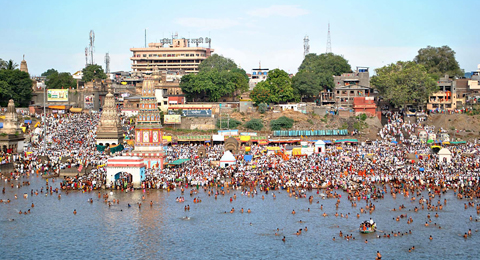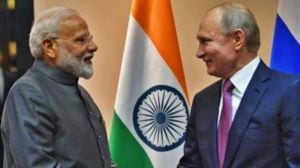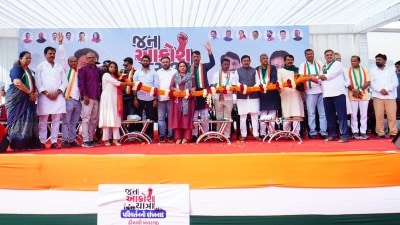For the first time in its 900-year history, the famous Vitthal Rukmini temple in Pandharpur is likely to get non-Brahmin or even women priests. The temple management committee has decided to invite applications for the post of eight priests from all castes, including that from scheduled caste and tribes. The candidates will be interviewed next week.
The decision to make priesthood open to women and members of all castes was taken in a meeting of the temple committee held last week.
“No single caste or group of people can claim monopoly on serving God and hence this decision was taken. We have invited applications from women priests also for the shrine of Rukmini,” said former minister Anna Dange, head of the temple committee.
A candidate must be a practising Hindu and well versed with the rites and rituals being practised at the temple. These are the prerequisites set for the candidates applying for the posts.
Santosh Teli, the chief executive officer of the temple committee, said: “As a condition has been put that the applicant must be a practising Hindu, neo-Buddhists will not be able to apply. We feel we will get applications from other backward classes, Marathas, nomadic tribes and vimukta jatis and other castes.”
The last date for sending applications is May 15, and an interview will take place on May 16. The names of new priests will be announced on May 18.
Story continues below this ad
According to Teli, the shrines of Jyotiba and Khandoba already have non-Brahmin priests. “However, other popular shrines like that of Kolhapur, Tuljapur or the shrines of Astavinayak have Brahmin priests only,” he said.
Teli pointed out that in Maharashtra, Satayshodak Samaj had been training people from non-Brahmin castes to be adept in Vedic rights.
Located in Solapur district of Maharashtra, Pandharpur temple is the nerve centre of the Varkari community, which has presence in Maharashtra, Karnataka, Tamil Nadu and other parts of the country. The annual pilgrimage of Wari sees lakhs of Varkaris converge at the temple. For the past many centuries, the Brahmin families of Utpat and Badves were functioning as priests at this temple.
Though the Varkari sect shuns caste-based discrimination, untouchables were not allowed inside the temple prior to 1950. Researcher Sanjay Sonawani pointed out that the entry of untouchables into the temple was allowed only after reformer Sane Guruji sat on a fast in protest against the practice.
Story continues below this ad
“Till the recent past, the idol of Vitthal used to be bathed with holy water to absolve it from the impurities it accumulated due to the touch of untouchables,” he said. This, despite the fact that the Varkari sect has a large number of saints from Dalit communities, whose works are held sacred by lakhs of devotees.
Though Sonawani welcomed the move to appoint non-Brahmin priests, he found the effort “half-hearted”, saying it was very unlikely that non-Brahmins would be well versed in the Vedic rites.
“The temple committee should take steps to adhere to the non-Vedic roots of the Vitthal cult and stop recitation of Purus-shukta at the temple as that hymn is the basis of the oppressive caste system,” he said.
Narhari Maharaj Chowdhari of the Maharashtra State Varkari Mahamandal, meanwhile, criticised the move saying it would hamper the age-old traditions of the temple.
Story continues below this ad
“We will convene a meeting of the Varkari community soon and decide on our next step,” he said.
The Supreme Court had earlier this year ended the monopoly of the Badve family over the offerings made to the temple.









